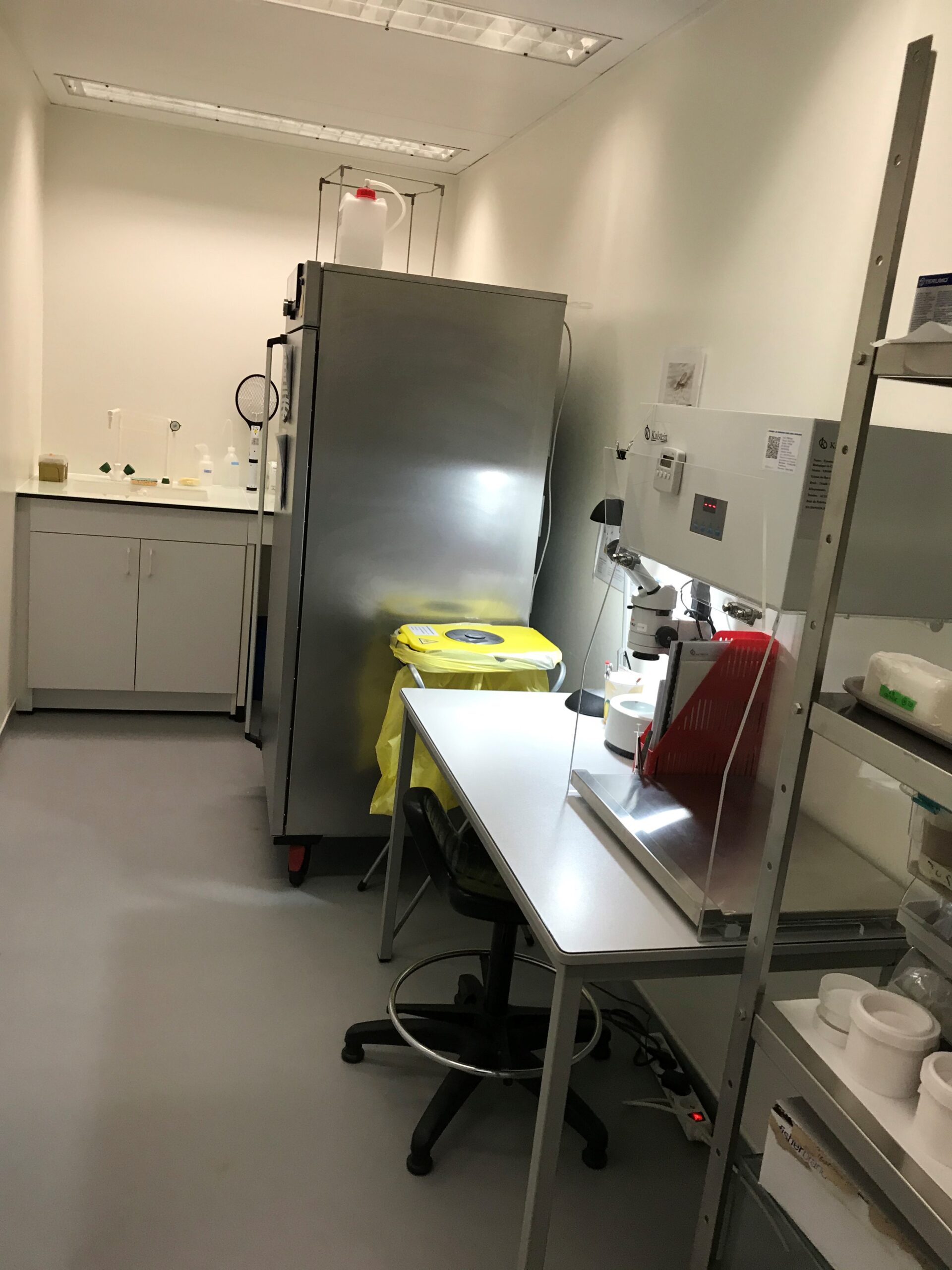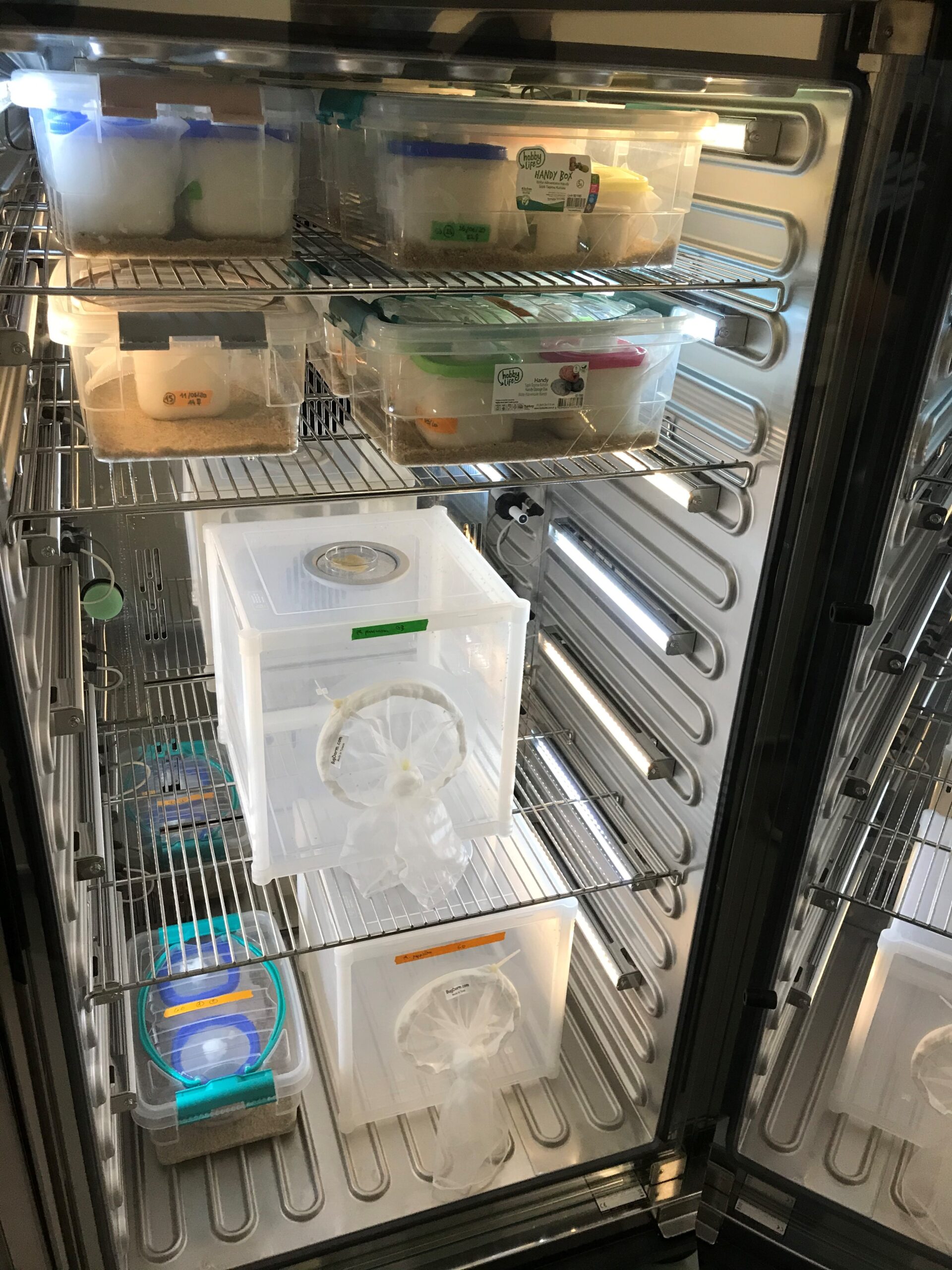Description
Material provided: Personalized training for end-users
Unit definition: 1 week of access
Installation name: Maladies Infectieuses et Vecteurs. Ecologie, Génétique, Evolution et Contrôle (MIVEGEC).
Website: https://www.mivegec.ird.fr/en/
Description of the facility
MIVEGEC is a leading research team in the field of entomology and infectious diseases including virus, parasitology and bacteria. It is located at Institut de Recherche pour le Développement, Montpellier (France). It provides fully equipped secure CL1, CL2 and CL3 insectaries and laboratories suitable to study sand fly vectorial competence, Leishmania infection, development and interaction with the host and the vector, behavioral assays and species identification approaches.
At present, two sand fly species are maintained: Phlebotomus perniciosus and Ph. papatasi. The vectopole is a platform located at the IRD campus in Montpellier France dedicated to the study of vectors and the pathogens they transmit. 550m2 of workspace are available, including fully equipped secure CL2 and CL3 insectaries and labs for vector behavior and insecticide resistance surveys. The lab is a WHO Reference laboratory for insecticide resistance in vectors. The facility includes:
- 85m2 of fully equipped insectary space in 5 rooms dedicated to insecticide bioassays,
- 125m2 of fully equipped CL1 insectary space in 7 rooms for insect rearing and vector behavioral tests,
- 54m2 of fully equipped CL2 confined spaced including 3 rooms for insect rearing and 2 labs,
- 62m2 fully equipped CL3 confined space including 2 rooms for insect rearing and infections, 2 rooms for experiments with small vertebrate hosts and 1 central lab.
One room is dedicated to sand fly rearing. This room is fully equipped for handling and maintaining sand fly colonies, equipped with one stereomicroscope and two climatic chambers with controlled temperature, humidity, and photoperiod. An animal housing facility is also present on the center allowing access to blood samples and a room for preparation of sand fly larval food, equipped with two hoods for fermentation and a freezer for storage of fermented food.
Available vectors
Experiments may be conducted with the following sand fly vector colonies: Phlebotomus papatasi and Ph. perniciosus.
Available parasites
Experiments may be conducted with the following parasites: Leishmania infantum and L. major.
Courses overview
Two 5-day theoretical and practical laboratory-based Personalized Training programmes are offered:
- Sand fly rearing: personalized training to establish and maintain sand fly colonies (rearing of sand flies, larval diet production, sexing males and females, etc.).
- Sand fly / Leishmania experimental infection: this training programme will provide the necessary background to plan, design, and conduct Leishmania – sand fly infection studies with Containment Level 3 (CL3).
Please specify in your request which training programme(s) you apply for.
Equipment used
Trainees will use the following equipment:
Sand fly rearing:
- Access to Biosafety level 1.
- Climatic chamber for uninfected sand flies with controlled standard conditions (temperature, relative humidity, and light/dark photoperiod).
- Room equipped for sand fly larval diet preparation.
- Microbiological Safety Cabinets for chicken skin preparation.
- Stereomicroscope and upper lightning.
- Artificial feeding equipment
- Lab equipment
- -20°C degree freezer and refrigerator
Sand fly / Leishmania experimental infection
- Access to Biosafety Level 3.
- Climatic chamber for infected sand flies with controlled standard conditions (temperature, relative humidity, and light/dark photoperiod).
- Microbiological Safety Cabinets.
- Stereomicroscope and microscope.
- Artificial feeding equipment
- Lab equipment
- -20°C degree freezer and refrigerator
For more information, please contact us.


